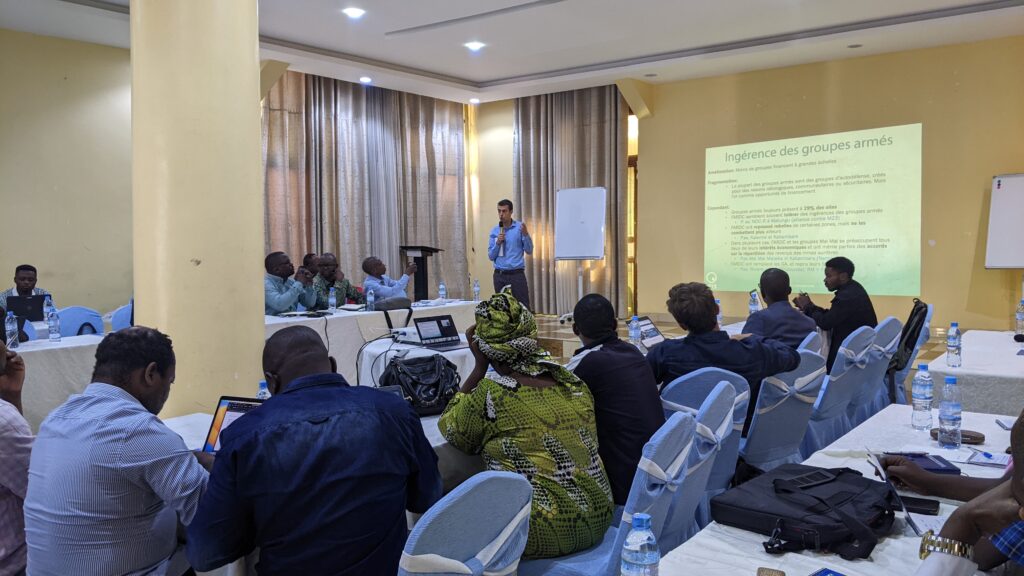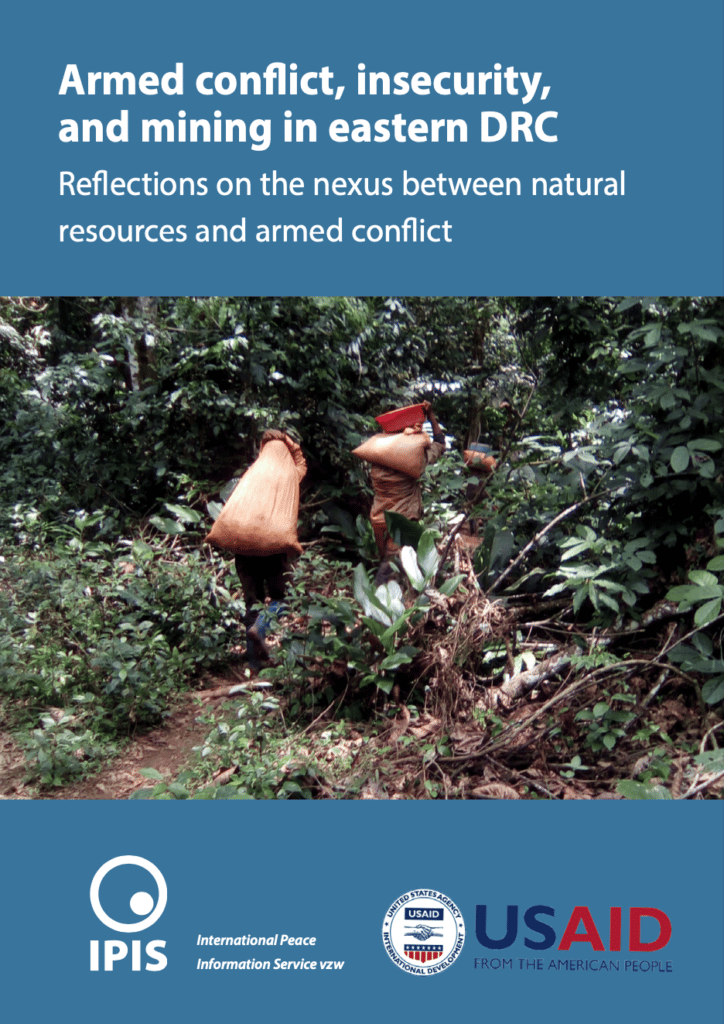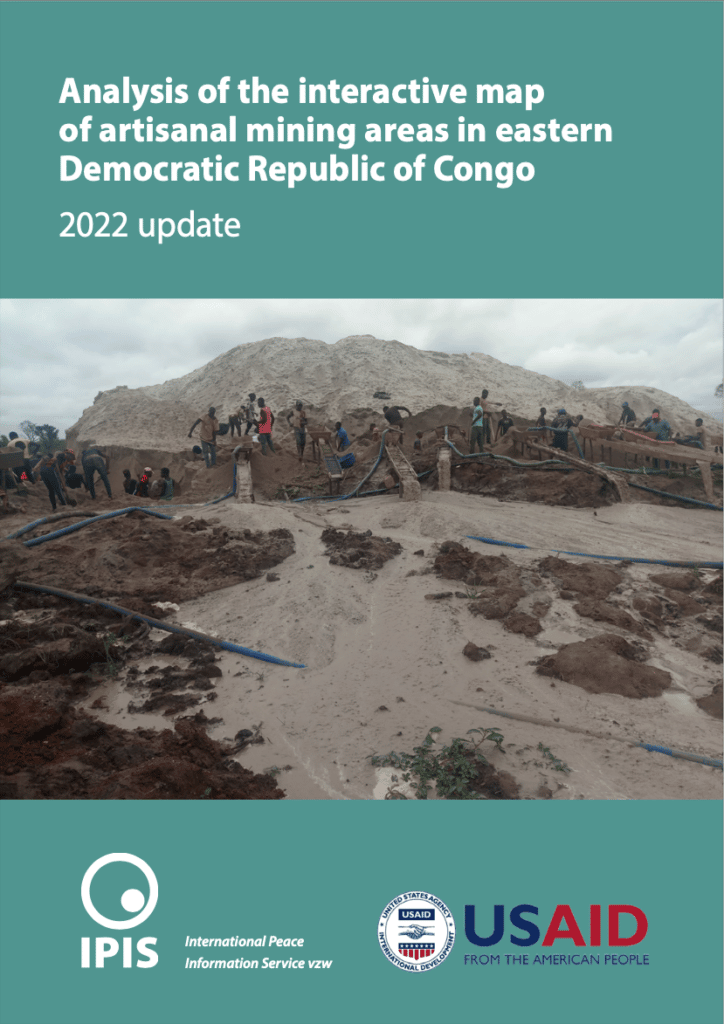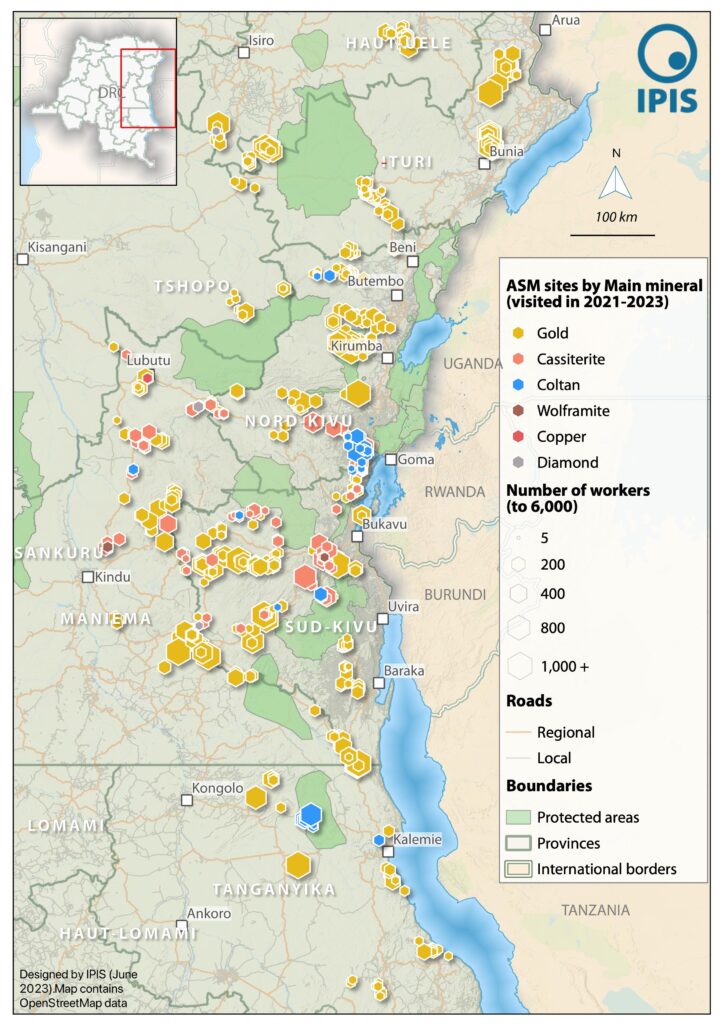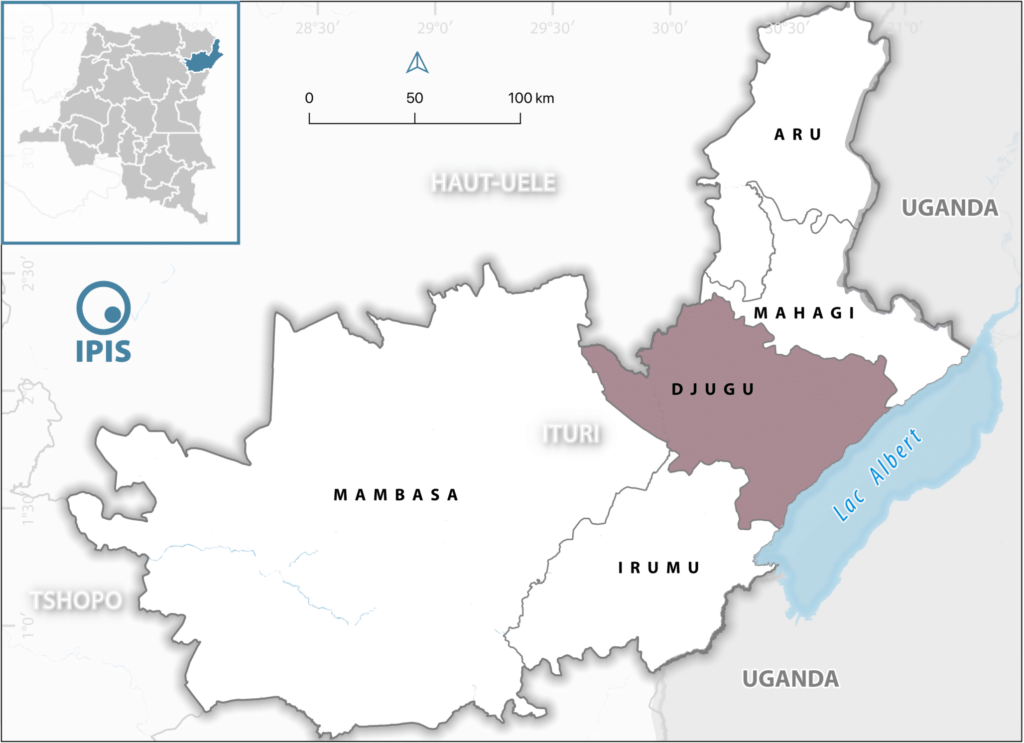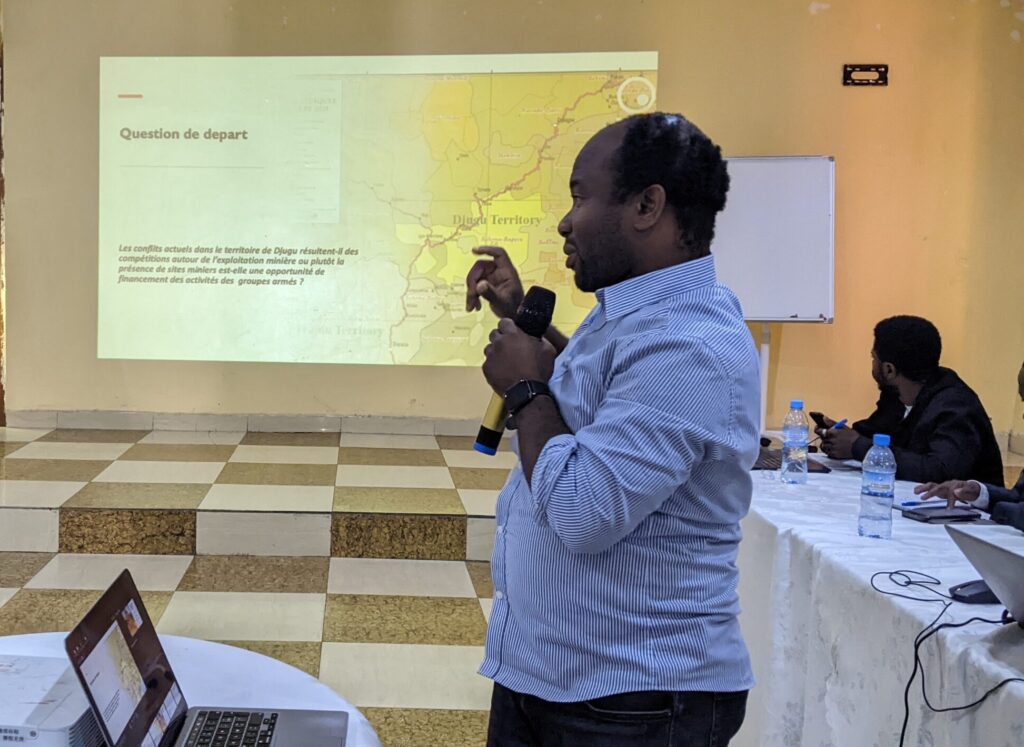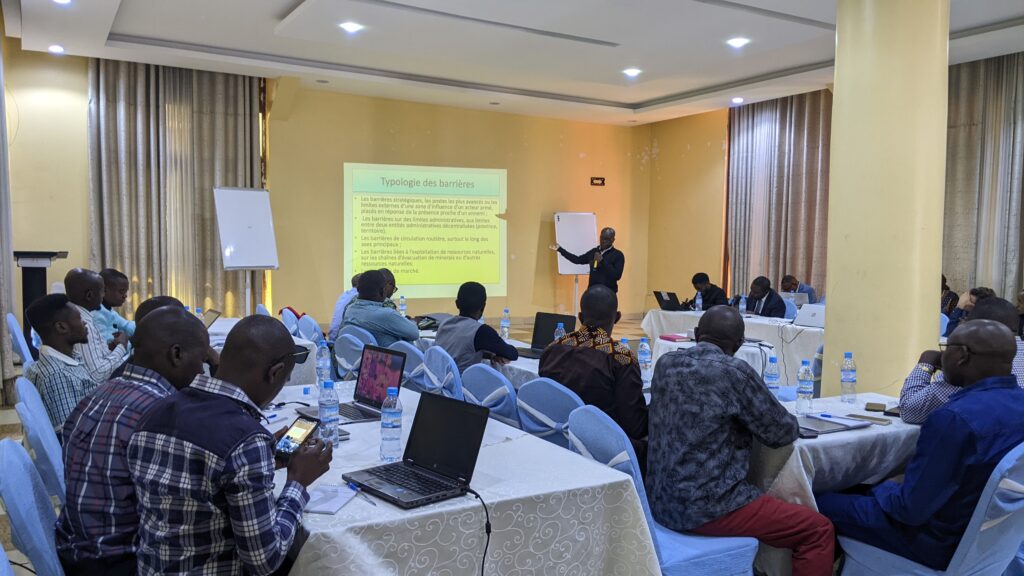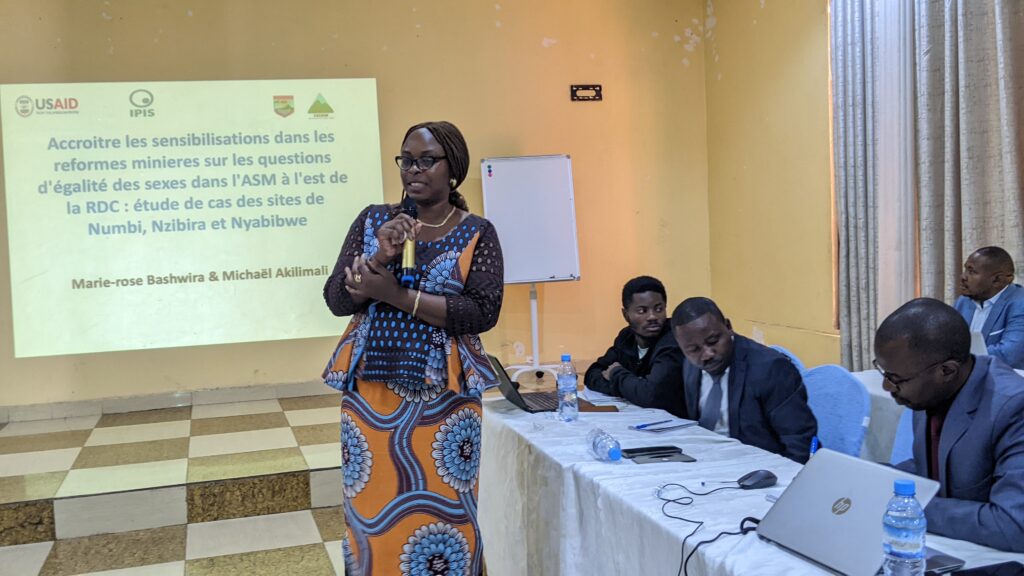Since 2021 and in partnership with USAID and the Congolese Ministry of Mines (through its technical service SAEMAPE), IPIS has been undertaking a large-scale project to map and analyse artisanal mining supply chains and conflict financing dynamics in eastern DRC.
A restitution meeting was held in Goma (North Kivu) on June 21st, 2023 to present and discuss the results produced over the past two years. The meeting successfully brought together 39 participants: Stakeholders from various provinces got the opportunity to engage on the topic of ASM supply chains and conflict financing with their counterparts in other regions of the country.
The meeting was opened by an introduction to the project during which Zacharie Bulakali (IPIS) explained the scope, methodology, objectives, and outcomes of the project.
IPIS researcher Ken Matthysen presented the results of the mapping of the ASM sites, and the key trends observed in the 800 mining sites visited.
Then, case studies were discussed to provide empirical evidence on the link between artisanal mining supply chains and conflict financing.
The first case study addressed conflict and armed groups in Djugu, Ituri. Josaphat Musamba (PhD student at the University of Ghent and researcher at the Groupe d’Études sur les Conflits et la Sécurité Humaine GEC-SH, Bukavu) collaborated with IPIS to investigate the link between the exploitation of gold and the current conflict in Ituri. During this workshop he provided an analysis of the different types of conflicts observed in Djugu, and the various actors involved. Josaphat Musamba stressed that land disputes and the fragmented administrative context are an important source of tensions in the region.
The second case study focused on roadblocks in Masisi and Walikale, North Kivu. ASSODIP presented the joint research conducted with the Danish Institute for International Studies (DIIS) and IPIS. Janvier Murairi explained the phenomenon of a ‘roadblock’, their characteristics, operators and socio-economic impacts. He also highlighted that road accessibility in the area was heavily affected by the M23-war.
Professor Marie Rose Bashwira Nyenyezi, (Centre d’expertise en gestion minière/Université Catholique de Bukavu, CEGEMI-UCB) presented the main takeaways of the research on barriers to gender equality in eastern DRC’s ASM sector. She discussed the position of women in mining in theareas selected for the case study, notably Numbi, Nzibira and Nyabibwe in South Kivu, and she underlined some of the unintended impacts that formalization and responsible sourcing initiatives have on the socio-economic position of women in mining. Professor Bashwira shared recommendations on how to increase awareness towards gender equality issues in policy reforms targeting ASM in eastern DRC.
Finally, the workshop was concluded with a lively Q&A and discussion to clarify questions of the participants, and a follow-up discussion on a range of topics including the role of FARDC in mining, the environmental impact of ASM, the efficiency of mineral traceability, and the impact of roadblocks.
The different studies presented during this restitution meeting will be published in the coming months.
Supported by USAID, Integrated Land and Resource Governance (ILRG) project


